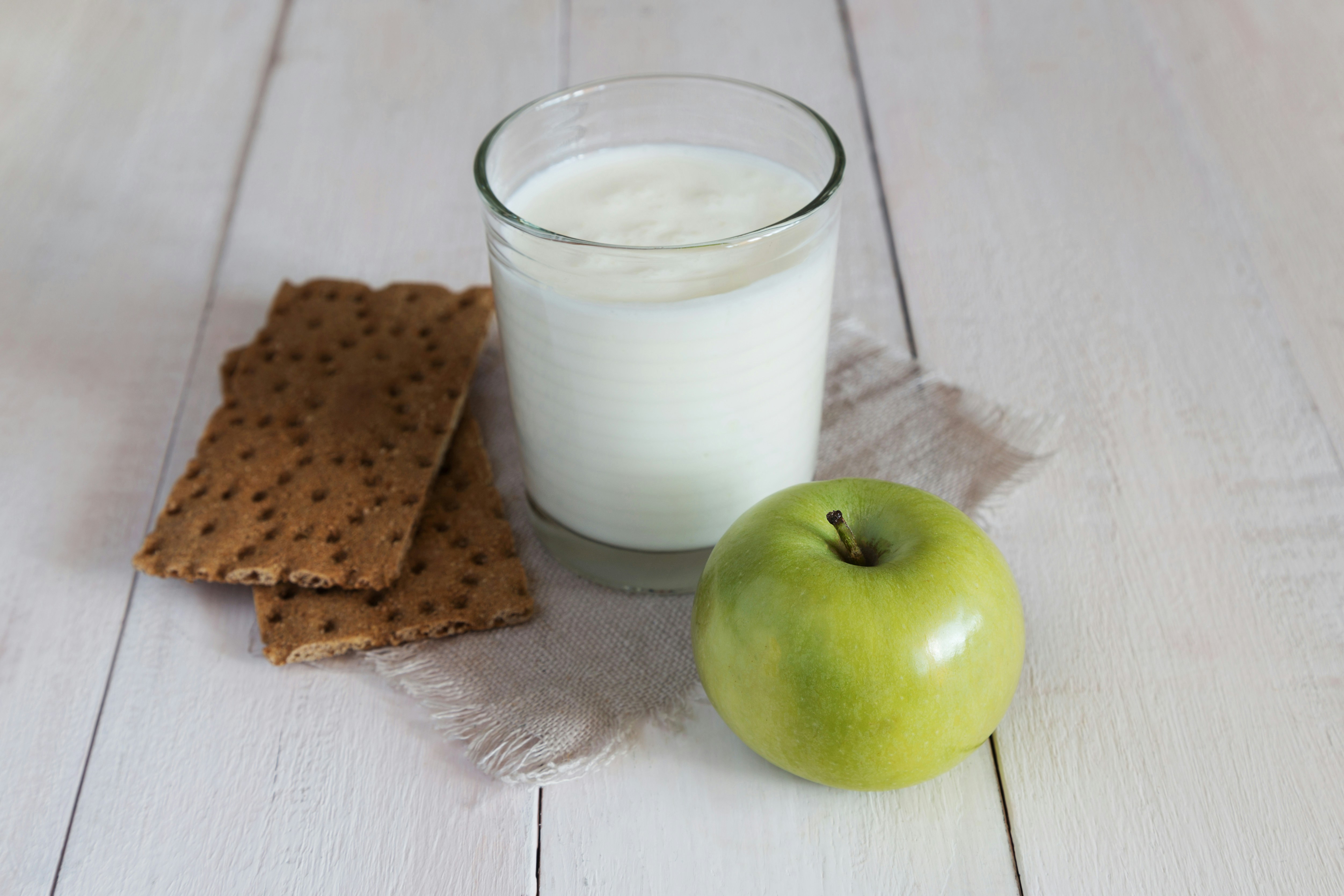Constituents Present in Milk
Milk is a complex and highly nutritious liquid composed of various constituents, each contributing to its overall nutritional value. The primary component of milk is water, which comprises approximately 87% of its total composition. This high water content is essential for maintaining the fluidity and consistency of milk, making it an excellent hydrating beverage.
Lactose, the main carbohydrate in milk, makes up about 4.8% of its content. Lactose is a disaccharide sugar that provides a readily available source of energy. It also plays a crucial role in the absorption of calcium and phosphorus in the intestines, enhancing the mineral bioavailability in milk.
The fat content in milk varies depending on the type of milk (whole, skim, etc.), but it typically constitutes around 3.4%. Milk fat is an important source of essential fatty acids and fat-soluble vitamins such as A, D, E, and K. It also contributes to the creamy texture and rich taste of milk.
Proteins are another significant component, accounting for about 3.3% of milk’s composition. The two main types of proteins found in milk are casein and whey proteins. Casein makes up roughly 80% of the protein content and is vital for forming curds in cheese production. Whey proteins, which constitute the remaining 20%, are known for their high biological value and easy digestibility. They play a key role in muscle repair and immune function.
Minerals, although present in smaller quantities, are essential for various bodily functions. Calcium, potassium, and phosphorus are the most prevalent minerals in milk, contributing to bone health, muscle function, and overall metabolic processes. Trace elements like magnesium, zinc, and selenium are also present, albeit in minute amounts, but are still vital for maintaining good health.
In addition to these major constituents, milk contains minor components such as enzymes and bioactive compounds. Enzymes like lactase and lipase aid in the digestion of lactose and fats, respectively. Bioactive compounds, including immunoglobulins and growth factors, enhance the immune system and promote overall health. These minor constituents, though present in small amounts, significantly contribute to the nutritional and functional properties of milk.
Vitamins in Milk and Their Roles
Milk is a rich source of essential vitamins that play pivotal roles in maintaining overall health. Among these, Vitamin A, Vitamin D, Vitamin B12, Riboflavin (B2), and Niacin (B3) are particularly noteworthy. Each of these vitamins contributes uniquely to various bodily functions, ensuring that our bodies operate smoothly and efficiently.
Vitamin A in milk is vital for maintaining healthy vision, skin, and immune function. It supports the formation and maintenance of tissues and organs, particularly the eyes. The recommended daily intake for Vitamin A varies by age and sex, but generally, it is about 700 to 900 micrograms for adults. A serving of milk can significantly contribute to meeting these nutritional needs.
Vitamin D is crucial for bone health as it aids in the absorption of calcium and phosphorus. This vitamin is essential for maintaining proper bone structure and function. The recommended daily intake of Vitamin D is around 600 to 800 International Units (IU) for most adults. Milk fortified with Vitamin D can help individuals achieve the necessary intake levels, reducing the risk of bone-related ailments such as osteoporosis.
Vitamin B12 is essential for the production of red blood cells and maintaining nerve health. It plays a critical role in DNA synthesis and energy production. The recommended daily intake for Vitamin B12 is approximately 2.4 micrograms for adults. Regular consumption of milk can help ensure adequate intake of this vital nutrient.
Riboflavin (B2) is another important vitamin found in milk, contributing to energy metabolism and the maintenance of normal vision and skin health. The daily recommended intake for Riboflavin is about 1.1 to 1.3 milligrams for adults. Milk serves as a convenient source to meet these requirements.
Niacin (B3) supports energy metabolism, DNA repair, and the synthesis of fatty acids and cholesterol. The recommended daily intake for Niacin is around 14 to 16 milligrams for adults. Including milk in the diet can help fulfill the body’s need for this vitamin.
Incorporating milk into your daily diet can be an effective way to meet the recommended daily intake of these essential vitamins, thereby supporting overall health and well-being.
Optimal Timing and Risks of Drinking Milk
The timing of milk consumption can significantly impact its health benefits. Drinking milk in the morning can provide a source of energy and essential nutrients to start the day. The high protein and calcium content in milk make it an excellent choice for breakfast, helping to sustain energy levels and support bone health. Conversely, consuming milk at night has been associated with improved sleep quality. Milk contains tryptophan, an amino acid that promotes the production of melatonin, the sleep-inducing hormone. Therefore, a warm glass of milk before bed can be a natural remedy for insomnia.
However, milk consumption is not without its risks. Lactose intolerance is a common issue, affecting a significant portion of the population. Individuals with lactose intolerance lack the enzyme lactase, necessary for breaking down lactose, leading to symptoms such as bloating, diarrhea, and abdominal pain. In addition, some people may have allergies to milk proteins, which can cause severe reactions like hives, wheezing, and anaphylaxis. The risk of consuming spoiled or rotten milk is another concern, as it can lead to food poisoning, characterized by nausea, vomiting, and diarrhea.
Milk products such as cheese, yogurt, and butter also offer varied nutritional profiles. Cheese is rich in calcium and protein but can be high in saturated fats and sodium, necessitating moderate consumption. Yogurt, particularly probiotic varieties, promotes gut health and aids digestion. Butter, while flavorful, is high in saturated fats and should be consumed sparingly to avoid cardiovascular risks.
Discover more from cricketlovercricket.online
Subscribe to get the latest posts sent to your email.
